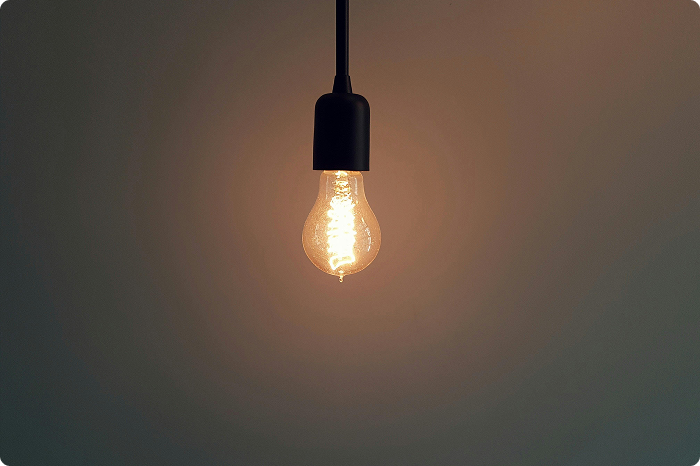Understanding High Energy Bills and Electrical Issues: Solutions for Homeowners
By Jake Wallace · Jul 25, 2025

Many homeowners face the frustration of unexpectedly high energy bills, often without understanding the underlying causes. High energy bills can result from various electrical issues, including outdated appliances, poor insulation, and inefficient electrical systems. By addressing these problems, you can significantly reduce your energy consumption and save money. In this article, we will explore common causes of high energy bills, how to identify electrical issues, and steps you can take to make your home more energy-efficient.
Identifying the Root Causes of High Energy Bills
High energy bills are typically a sign that something in your home's electrical system or overall energy profile isn't functioning optimally. Here are some common causes:
1. Outdated Appliances
Older appliances tend to be less energy-efficient than modern ones. If your refrigerator, washing machine, or heating system is more than ten years old, it might be time to consider an upgrade.
2. Poor Insulation
Insufficient insulation in your home can lead to significant heat loss in the winter and excess heat gain in the summer, causing your HVAC system to work harder than necessary.
3. Inefficient Lighting
Traditional incandescent bulbs consume more energy compared to LED or CFL bulbs. Switching to energy-efficient lighting can result in substantial savings.
4. Standby Power
Many electronic devices consume power even when turned off. This is known as phantom load or standby power. Unplugging devices or using smart power strips can help reduce this unwarranted energy consumption.
Common Electrical Issues Leading to High Energy Bills
1. Faulty Wiring
Faulty electrical wiring can cause circuits to consume more power than they should. This not only drives up your energy bills but also poses a significant fire risk.
2. Overloaded Circuits
Using too many high-wattage appliances on a single circuit can cause the system to overload, leading to higher energy consumption and potential damage to your electrical system.
3. Aging Electrical Panels
Old electrical panels may not distribute electricity efficiently, causing some circuits to draw more power than necessary.
Energy Audits: A Comprehensive Solution
One of the best ways to identify the specific issues contributing to high energy bills is to conduct an energy audit. An energy audit involves a detailed examination of your home's energy use and can pinpoint exact areas for improvement.
Steps in an Energy Audit:
- Blower Door Test: This test measures the air tightness of your home and identifies leaks that lead to energy loss.
- Thermal Imaging: Infrared cameras detect areas of poor insulation and air leaks.
- Combustion Analysis: This test ensures your heating system operates efficiently and safely.
An energy audit will provide you with a comprehensive report detailing your home's energy performance, including specific recommendations for energy-saving improvements .
Practical Steps to Address Electrical Issues and Reduce High Energy Bills
1. Upgrade to Energy-Efficient Appliances
Invest in modern, energy-efficient appliances that consume less power and reduce your overall energy consumption. Look for Energy Star-rated appliances as they are certified to be more efficient.
2. Improve Home Insulation
Upgrading insulation in your attic, walls, and floors can significantly reduce heating and cooling costs. Insulating ducts and sealing leaks will prevent conditioned air from escaping, making your HVAC system work more efficiently .
3. Use Smart Thermostats
Smart thermostats can help you monitor and control your home's temperature more effectively, ensuring that you use energy only when needed. These devices can learn your habits and adjust heating and cooling automatically, further saving energy .
4. Install Energy-Efficient Lighting
Replace incandescent bulbs with LED or CFL bulbs, which use less energy and last longer. Also, consider using motion sensors and timers to ensure that lights are only on when needed.
5. Implement Renewable Energy Solutions
If feasible, consider investing in renewable energy solutions like solar panels. While the initial investment can be high, the long-term savings and environmental benefits make it worthwhile.
6. Electrical System Upgrades
Hire a licensed electrician to inspect and upgrade your electrical system, including wiring, panels, and circuits. Modernizing your electrical system can enhance its efficiency and safety .
Best Practices for Monitoring and Maintaining Energy Efficiency
- Regular Maintenance: Schedule annual maintenance for your HVAC system and other major appliances to ensure they are running efficiently.
- Monitor Energy Usage: Use energy monitoring devices to track your energy consumption and identify patterns or spikes that could indicate issues.
- Educate Household Members: Make sure everyone in your home understands the importance of energy conservation and practices habits that contribute to lower energy consumption, such as turning off lights when not in use and unplugging electronics.
- Consider Professional Help: Sometimes, DIY fixes are not enough. Consulting with professionals can provide you with tailored solutions that address your specific energy concerns.
Conclusion
By understanding the common causes of high energy bills and identifying electrical issues, you can take proactive steps to make your home more energy-efficient. From upgrading appliances to improving insulation and modernizing your electrical system, there are numerous ways to reduce your energy consumption and save money. Regular maintenance and monitoring are key to sustaining these improvements over the long term.
For expert advice on resolving high energy bills and electrical issues, or to find a reliable electrician, visit HouzTask AI to ask your questions, or use our Find a Pro service to locate skilled professionals in your area.
Need help?
Let HouzTask help you diagnose the issue or connect with a trusted local pro — in minutes.
Get Started with HouzTask